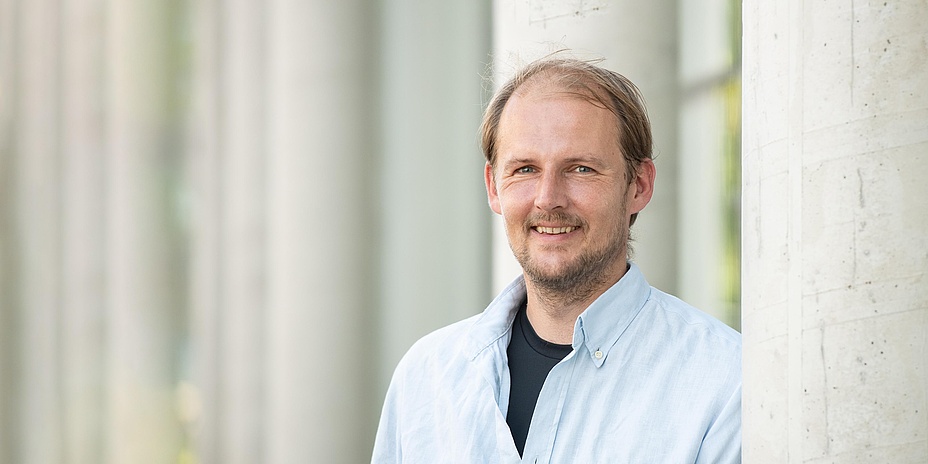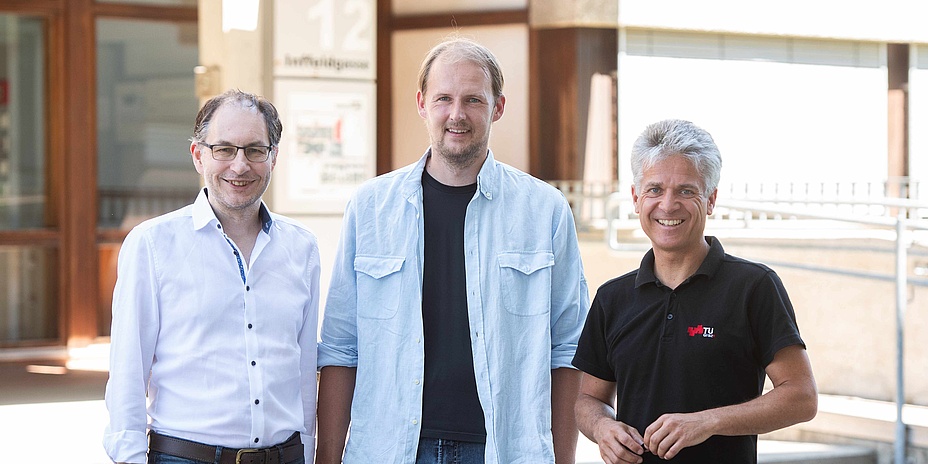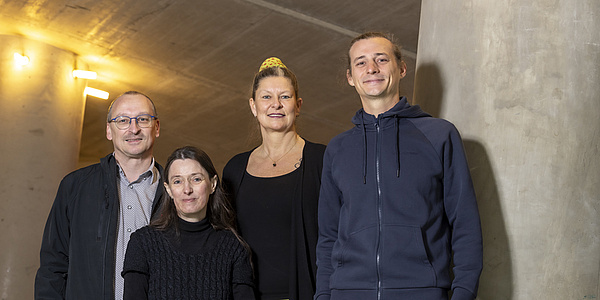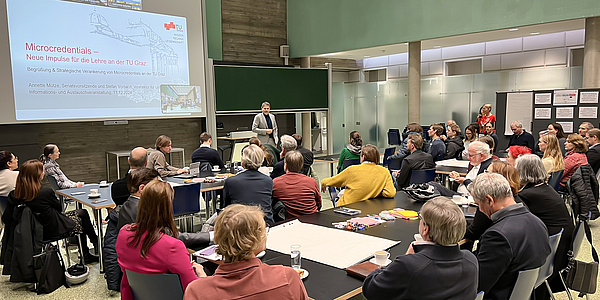A Stroke of Luck and a Sense of Subtlety

TU Graz employee Mark Hochrein perceives stimuli more clearly than others. ‘My body releases too much dopamine and I lack the natural filter for stimuli in my brain. So I have to filter a lot of things out manually, which means more work for the brain.’ The 38-year-old needs a low-stimulus and a stress-free working environment, so a structured and quiet workplace is important to him.
He found this job with the help of the ‘Fakultät Inklusiv’ project at the Institute of Electronics and the Institute of Microwave and Photonic Engineering. Thomas Wallner from the Service Point for Accessible Working put us in touch with Bernd Deutschmann and Wolfgang Bösch. The two institute heads invited Mark Hochrein to an interview, which Helmut Paulitsch also attended: ‘I realised straight away that Mark would be a good fit for our team. He is very interested in our topics and incredibly committed,’ explains Hochrein’s line manager. Paulitsch was not previously aware of the ‘Fakultät Inklusiv’ project, ‘but Mark is a real stroke of luck for us. Without the project, he probably wouldn’t have come to us.’
Overcoming barriers, creating opportunities
Through the ‘Fakultät Inklusiv’ project, the Rectorate finances personnel costs for people with disabilities at each faculty to the equivalent of one full-time position. The application process is supported by the Service Point for Accessible Working. ‘The aim of the project is to break down barriers and enable people with disabilities to participate in the labour market on an equal footing,’ explains Thomas Wallner.

Mark Hochrein has worked as a technical employee for various companies in the private sector. Since September last year, he has been working part-time at TU Graz, one week at the Institute of Electronics and one week at the Institute of Microwave and Photonic Engineering. ‘The work here is a dream,’ he emphasises. A to-do list is drawn up in advance with his line managers and prioritised. ‘I’ve always been a technician,’ he smiles, ‘for me, this is tinkering is at a higher level. My bosses and colleagues give me the best possible support and it was important to me right from the beginning to be open about my illness.’ At the Institute of Microwave and Photonic Engineering, Hochrein is working independently on the construction of a research radar. He is also involved in day-to-day operations at the Institute of Electronics, for example making components, working in the EMC laboratory to test the electromagnetic compatibility of electronic components or supporting the in-house workshop with various activities. ‘Mark is perfect for us,’ highlights Bernd Deutschmann, ‘we have a high demand for technical employees, and Mark is simply super on a personal and professional level. It should be a matter of course to employ people with a disability,’ says the head of the Institute of Electronics.
Life in the fast lane
‘If you send too much information to a processor, the processor gets hot at some point, and if it doesn’t cool down, it switches to emergency mode,’ says Mark Hochrein, describing his illness, which first manifested itself in 2016 with a breakdown. Before that, his life was ‘always on the go, I was constantly working under pressure, with lots of overtime. In my spare time, I was a driver for the ambulance service.’ Then suddenly nothing worked any more, I was totally exhausted and had physical pain and burn-out-like states. It took him many years to realise what he was suffering from. Hochrein had to learn to reorganise his life and ease off the pressure. With the right medication and medical support, the man from Gleisdorf can now live well with his condition. ‘It was a long learning process and I now do things in a way that don’t stress me out.’ Mark Hochrein is also busy at TU Graz on his days off. He is studying electrical engineering and is currently preparing for his final exam for his BSc. Since ‘For me, learning is not stress, it’s relaxation’.
The ‘Fakultät Inklusiv’ project finances personnel costs at each faculty for people with a recognised disability to the extent of one full-time employee for two years. More details at TU4U.
You can find this article and other articles to browse through in TU Graz people #93, the magazine for TU Graz employees and interested parties.




